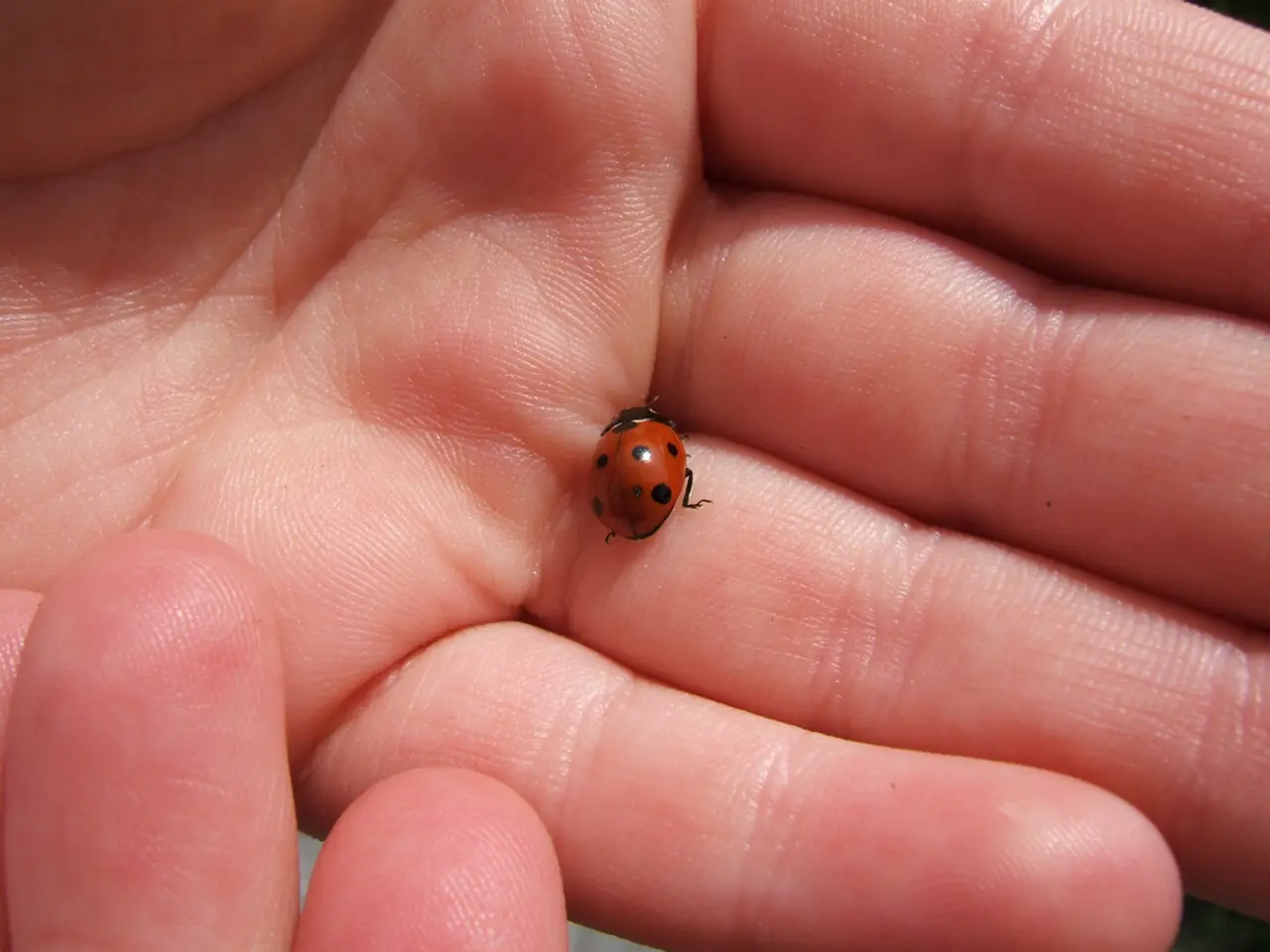Thailand issues alert for increasing cases of hand, foot, and mouth disease
In the current rainy season of 2025, Thailand has experienced a surge in Hand, Foot, and Mouth Disease (HFMD) cases, primarily affecting infants and young children, according to the Department of Disease Control (DDC)[1][2][3]. This seasonal rise is consistent with patterns seen in tropical countries where HFMD outbreaks often peak in rainy or humid seasons.
Symptoms of HFMD typically include fever, mouth ulcers or sores, and a rash or blisters on the hands, feet, and sometimes buttocks or other areas. Additionally, young children may exhibit irritability and loss of appetite[5].
Prevention measures and public health advice focus on maintaining strict personal and environmental hygiene. This includes frequent handwashing with soap and water, especially after diaper changes or contact with contaminated surfaces. Cleaning and disinfecting surfaces and shared items regularly is also crucial. To prevent the spread of HFMD, it is recommended to avoid close contact with infected persons[3]. Monitoring children for symptoms and keeping them home from school or daycare if infected is also essential[3].
Thai health authorities and regional public health networks have urged attention to hygiene as a key control measure amid rising HFMD cases this year[3]. Similar recommendations are common internationally during HFMD outbreaks.
No specific antiviral treatment exists for HFMD; care is supportive. Severe cases are rare but can include complications such as viral meningitis, so early detection and hygiene to reduce transmission remain central to public health strategies[4].
The Thai government has issued a public health advisory warning about HFMD[6]. Parents are advised to ensure their children receive appropriate vaccinations, maintain good hygiene, get 8-10 hours of sleep each night, and eat a balanced diet, rich in fruits and vegetables[7].
Children aged 0-4 years account for the majority of the reported cases (15,753 cases), followed by children aged 5-9 years (4,658 cases) and those aged 10-14 years (544 cases)[1]. If two or more students in the same classroom fall ill within a week, the classroom should be closed for at least one day for cleaning[3]. Sick children should be sent home and kept out of school until fully recovered, and parents should avoid sharing personal items such as cups, spoons, and towels[7].
Outbreaks of HFMD are most common between June and August, and health screening should continue for another week to monitor for new cases[8]. Parents should seek medical attention immediately if their child shows worsening symptoms such as increased discomfort or refusal to eat or drink[7].
References:
[1] Department of Disease Control (2025). Hand, Foot, and Mouth Disease (HFMD) Surveillance Report, January 1 - June 25, 2025. [2] World Health Organization (2025). Hand, Foot, and Mouth Disease (HFMD) Fact Sheet. [3] Ministry of Public Health, Thailand (2025). Public Health Advisory: Hand, Foot, and Mouth Disease (HFMD). [4] Centers for Disease Control and Prevention (2025). Hand, Foot, and Mouth Disease (HFMD) Treatment. [5] American Academy of Pediatrics (2025). Hand, Foot, and Mouth Disease (HFMD) Symptoms. [6] Government of Thailand (2025). Public Health Advisory: Hand, Foot, and Mouth Disease (HFMD). [7] World Health Organization (2025). Hand, Foot, and Mouth Disease (HFMD) Prevention and Control. [8] Ministry of Public Health, Thailand (2025). HFMD Outbreak Response Plan.
- Education about hygiene practices in hand-washing, cleaning surfaces, and maintaining personal hygiene is crucial in the business of health-and-wellness, especially during the current rainy season when Hand, Foot, and Mouth Disease (HFMD) cases are surging, as it contributes to the economy by reducing the spread of diseases and protecting the health of children.
- The Thai government is advocating for the importance of science, such as medical research and development of antiviral treatments, alongside maintaining a balanced diet, regular sleep, and vaccinations, as part of a comprehensive approach to promote mental health and overall health during the HFMD outbreak.
- Efforts to improve the economy by investing in education, especially in disease control and public health, can lead to advancements in science and medicine, ultimately affecting overall health and well-being, as seen in the important role hygiene plays in preventing the spread of Hand, Foot, and Mouth Disease (HFMD) in Thailand.




